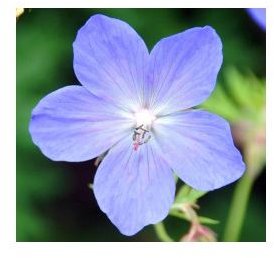Using Essential Oils for Circulation
What Is Poor Circulation?
Every organ in the body is dependent on the constant arrival of new oxygen-rich blood to function properly. Without it, body tissue eventually becomes deprived of oxygen and necessary nutrients, leaving organs and systems to operate on a subpar level. This is why it is so important to improve blood circulation with a healthy diet, regular exercise and natural remedies such as using essential oils. Poor circulation is the result of obstructed blood flow. Many people suffer from poor circulation, especially those who are more sedentary than active, who smoke, and those who have a high-fat, low fiber diet.
Although the causes of bad circulation vary, atherosclerosis, or a hardening of the arteries due to plaque build-up, is often the culprit. Blood clots and varicose veins can also greatly constrict natural blood flow, and be caused by it. In minor cases, people experience cold hands and feet, cramping after walking distances, occasional numbness in the feet or toes, and skin problems. Slow healing, low energy levels and poor skin tone are all possible side effects of poor circulation. The body also loses its ability to heal and recover quickly, and toxins are not as efficiently removed from the body. The use of essential oils for circulation is one natural way to stimulate blood flow.
How to Use
Essential oils are the extremely concentrated essences of plants. The volatile oils and other medicinal compounds are extracted from flowers, leaves, bark, stems or roots of a plant. To improve blood circulation, the properties of the essential oil enter through the skin or are picked up through the olfactory nerves, and are then circulated through the body. Massage, which increases circulation, will encourage the uptake of the medicinal properties. Heat as well makes the essential oils more effective.
Using essential oils as an alternative treatment can be very effective, but keep in mind that they are very potent; so much so that they should not be directly applied to the skin. Blend them into a carrier oil or a fragrance-free lotion for direct content, or dilute them in water for a therapeutic bath. Good carrier oils are almond, apricot, jojoba, avocado, grape seed, and olive. Use 25 drops of essential oil for every 2 ounces of a carrier oil; 25 drops for 8 ounces of lotion; and, 8 to 10 drops diluted in a cup of water for a bath.
The Best Aromatherapy Oils for Blood Flow
There are several essential oils which have a direct effect on the circulatory system. Some, such as juniper oil and marjoram oil help to dilate blood vessels, thereby allowing more space for blood flow. Others, such as cypress oil and geranium oil have astringent properties, and act by toning vessels. Other essential oils for circulation include:
- Ginger
- Peppermint
- Rosemary
- Frankincense
You can blend some of these aromatherapy oils together, or with other essential oils. For example, try geranium with lavender and rose, or rosemary with thyme. Keep in mind that some of these oils can be irritating to the skin, including ginger, cypress, juniper, rosemary and peppermint. Also, it is best not to use essential oils while pregnant or if you have any medical conditions without the supervision of a health care professional.
Using essential oils is one alternative treatment for poor circulation; but, it is also important to be conscious of factors which can continue to inhibit blood circulation, such as diet, lifestyle choices and exercise.
References
Balch, Phyllis A. “Prescription for Nutritional Healing.” Fourth Edition (Penguin Group, 2006).
photo: Geranium
Please read this disclaimer regarding the information you have just read.
